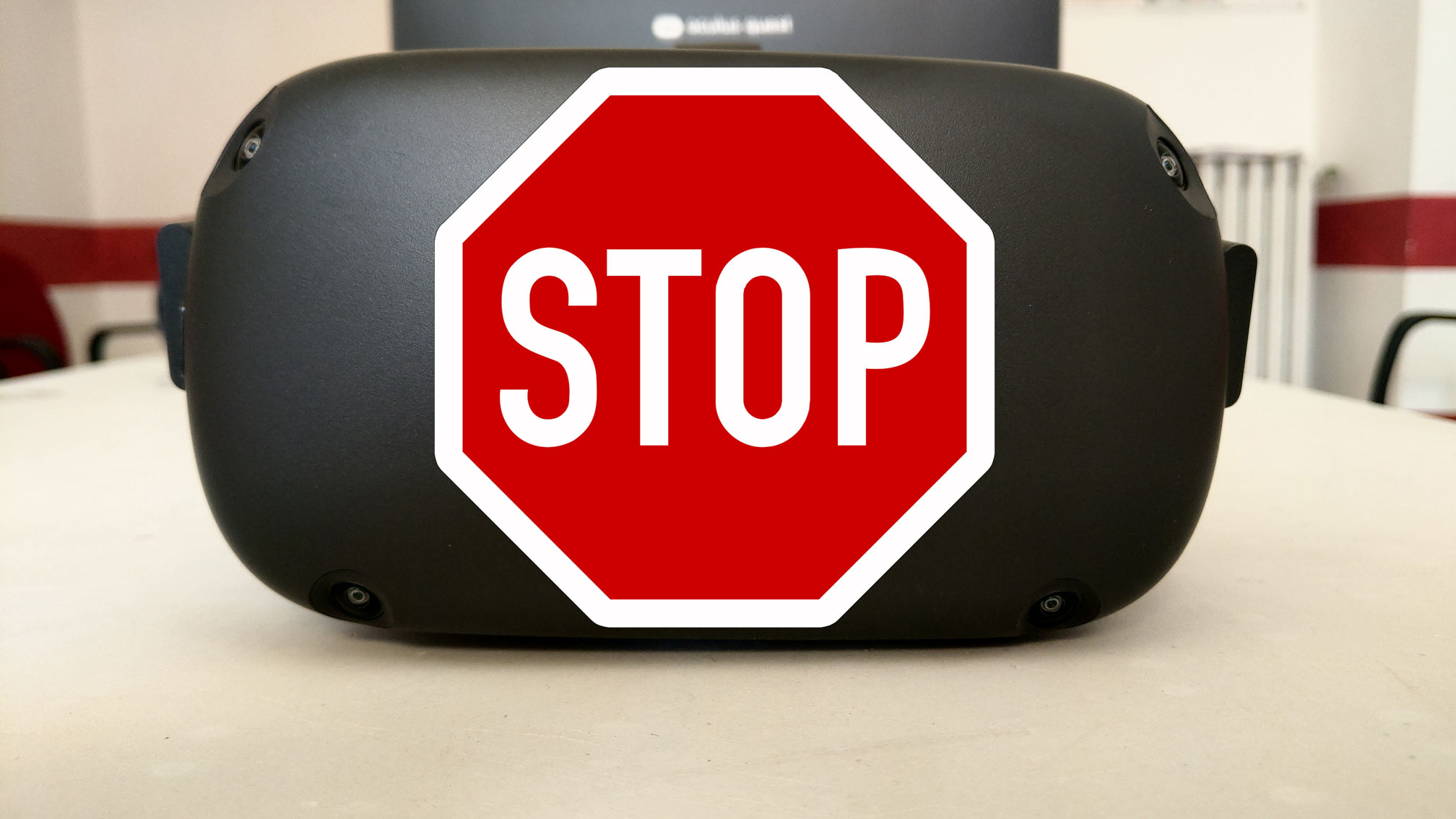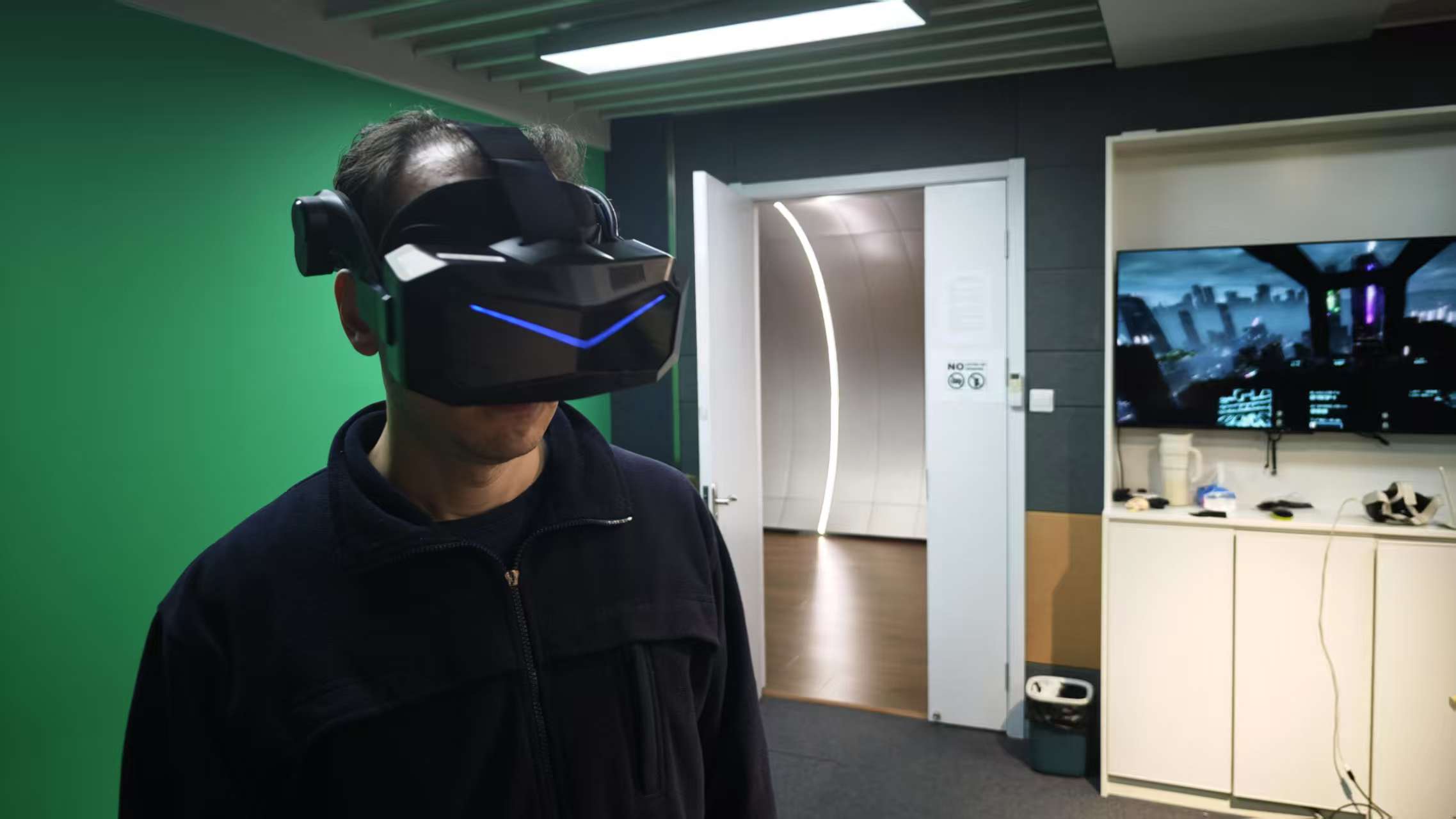Oculus should change how it rejects apps for Quest
I’m writing my review on the Oculus Quest (it will be out tomorrow!) and I am so analyzing this headset from all the points of view. As one of the first developers for the Vive Focus Plus (since the 6 DOF devkit times), I am also able to evaluate all the pros and the cons of this headset with regard to its main competitor (as I did in this post). And while I think that the Quest is really a fantastic device, there is something that irritates me: the fact that it is treated as a gaming console.

This basically means three negative things:
- The Quest will be mostly about gaming and less about other content like education or productivity (though there are also non-gaming apps, like Tilt Brush);
- The Quest games are more
expensive, because the content will have to subsidize the hardware, that is probably soldundercost ; - There is “content curation”. This means that Oculus must approve all the titles before they get published. Oculus wants to ensure that every person buying a Quest will be able to play only high-quality games.
I don’t like
I appreciate that Oculus wants to maintain a high standard in its content library because no one wants to buy a new piece of hardware and find the good content flooded inside a lot of crappy titles. So, I am ok with content review. But I think that it should be a way to stop all the low-quality submissions, while it seems that at the moment, Oculus is being a bit too strict on content approval.
First of all, you have to ask for approval even before starting. The only way to be able to have a dev account for Quest is being approved by Oculus itself. This means that you have to prepare a document that specifies all the technical and business details about your game. To be approved, you must prove that you will be able to create a title that is compelling and that will be able to make money. Easy if you are Ready At Dawn, damn difficult if you are a new little indie game studio.
I thought that it was just a way to discourage the crappy titles developers, while in the last weeks, I have read about various titles that have been rejected. Interesting titles, maybe already available for other platforms, that didn’t deserve such a treatment.
The most famous case is the one of To The Top, that has a 9/10 rating on Steam. In a recent interview, the developer has claimed that the title won’t come to Quest because Oculus has denied the permission.
To me and other people, this sounded completely absurd.
But there are other cases, like the one of Loco Dojo, of the famous influencer Sam Watts. It has 4/5 on Oculus Store and 8/10 on Steam, but it has been rejected the same.
Sam has tried to write a very nice message to avoid rage against Oculus (he’s really a nice man)
The VR games industry is the same as the games industry, hundreds of games never see the light of day or make it from one platform to another, it’s just a fact of life. There’s no ill feeling towards anyone and I’m still super excited for the release of the headset, it’s going to be awesome either way
But I still think that he deserved to be on Quest.
What about Anyland, one of the most beloved indie world-creation tools on Steam? My friend Sasha has spent a lot of time creating his home there. According to a comment on Reddit quoting a chat with the developer, it has been rejected as well.
CardThe absurdity is that even some devs who were granted the devkits have seen their applications rejected in the end!
Oculus has clarified in the FAQ that the devkit didn’t give the guarantee of the publication, but I still find it a bad move.
I could tell other names, like Pano Painter or the experience by Micah Blumberg, just to name
What I want to point out is that
And the biggest problem, the thing that really grinds my gears completely is the fact that Oculus gives no reason for its refusals. Oculus just answers with a template e-mail that simply states that the app is not in

This is wrong on so ma
I know that because something similar has happened to me during the first times the Gear VR was released. I tried to submit an experimental app, an escape room for Gear VR. It was not the best game ever, let’s be honest, but it was also a time when the standards for VR gaming were much lower. I hoped to see my app on the store, and
The worst thing is that, exactly as it has happened to the above developers, Oculus didn’t tell me why my app was rejected. The answer was even less political than the one above. I got something similar to “Due to the high number of submission, we won’t even spend the time telling you while it has been rejected”.
Receiving a similar message made me feel so powerless. First of all the answer implied that I was so insignificant, that I didn’t even deserve an explanation. Then, it left me with an application that didn’t know how to fix to get it approved. In the end, I abandoned the project and just used the app for some demos for customers.

And this is why I think that the rejections by Facebook should include a reason. This would have the following advantages:
- It would be more respectful for the dignity of the developers. Oculus would seem a company that cares more about its ecosystem;
- It would allow the developers to understand how they can improve;
- It would let studios fix their games. If the problem is the fact that the team is too little, they could seek
for partnerships; if the problem is that the game seems not profitable, new business strategies can be found. This would allow for more games to arrive on Quest, and maybe one of these ones could become the new killer app; - It would allow
to cope with misunderstandings. Maybe the game is perfect, but it has been pitched in a bad way, and with just a new pitch, it can be published and become a hit.
What Beat Saber teaches us is that you never know what will be the killer app. If someone pitched me a game telling “we are 3 people and want to make a game where you slice cubes in VR”, I would have probably rejected it. Pitches are not a perfect system, that’s why a better communication is fundamental.
It is ok even to go with standard templates as answers, but please indicate the reasons in the template: e.g. “The game has a wrong monetization model”, or “The team seems not suitable to develop this game”. Whatever reason is ok, but at least
I am not the only one on this. On
I think that a healthy VR ecosystem can be made with better communication between companies and developers. And I really hope that Oculus will
Some people told me that probably this is something that will just happen in the first
(As a disclaimer, I have not had a Quest app rejected by Oculus)
Disclaimer: this blog contains advertisement and affiliate links to sustain itself. If you click on an affiliate link, I'll be very happy because I'll earn a small commission on your purchase. You can find my boring full disclosure here.



